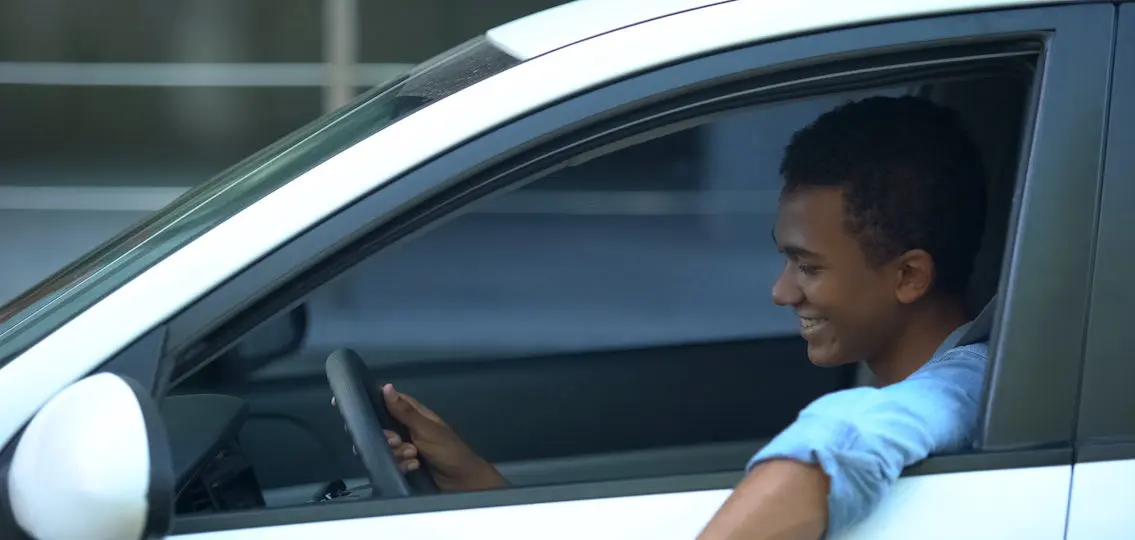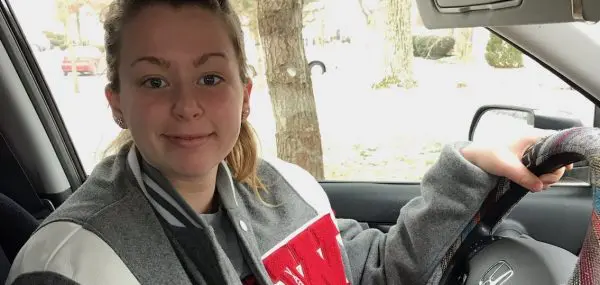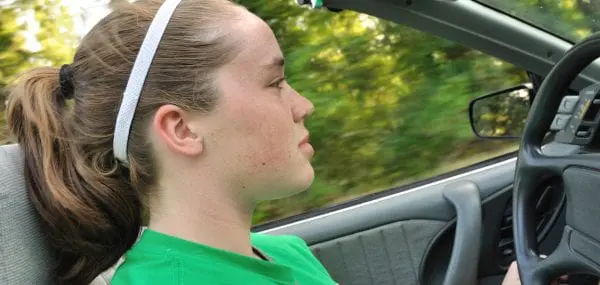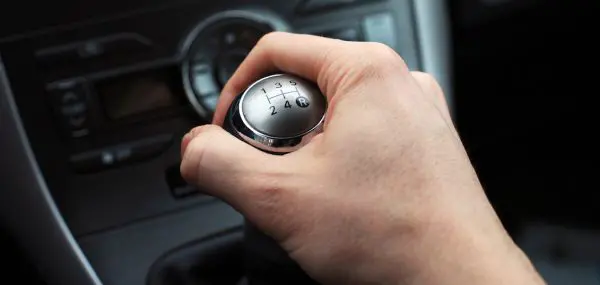Mom’s driving gave me nightmares.
I was five years old when our move out of the city meant Mom finally had to learn to drive. She took lessons with a local police officer and, every afternoon, Sergeant McAnn took her out to practice in our station wagon. And every night I woke, heart racing and drenched in sweat, having dreamed our car rolled down a hill and crashed before she could get it in gear.
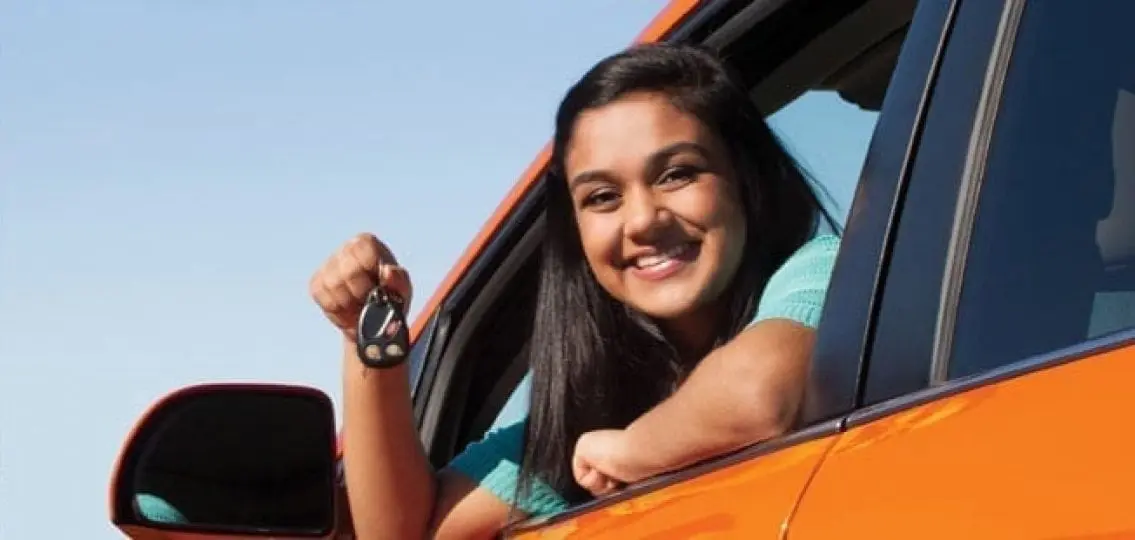
Mom was the epitome of competence—she could make soap, bandage a wound, wire a lamp. Nothing about her driving, guided by the precise and professional policeman, ever demonstrated otherwise.
But witnessing her learn a new thing was uncomfortable.
I was relieved when she was officially licensed and could put lessons in the rearview mirror.
But driving expertise didn’t give Mom the satisfaction of her other skills. The car was more like a prison than a launching pad. She grouched that the school schedule—especially the requirement that elementary schoolers eat lunch at home—was designed to keep women trapped in their cars, robotically driving their children back and forth instead of developing careers outside the home. Her complaint was my earliest lesson in feminism. My second lesson came when she took a job in the city and Dad took over my lunchtime pickups.
Dad and I had adventures. In those carefree days before car seats and airbags, Dad would sit me on his lap and let me shift gears. When I got so big I blocked his view, I’d lean over from the front passenger seat, hand on the stick, waiting for his signal. I learned to recognize the whine of an engine needing to shift, to float in that moment of suspended animation when Dad pressed the clutch. We fell into sync, driving short jogs around town or longer trips to my grandparents.
Dad liked to pop the car into neutral and coast down hills.
One was particularly long and we’d fly, recklessly betting on how far we could coast once the road flattened out along the river. I’d white-knuckle the armrest and brace my feet against the imaginary brake, terrified and exhilarated. Once, he drove us over a pedestrian bridge in an unfamiliar city, a mistake we only realized when we bumped off the sidewalk back onto the street. Another time, driving home from my grandparents late at night, we got lost in a storm, broke down, and spent hours in a small-town garage.
I’m sure it was tedious for him, my worried mother back home, and the friend who eventually came to collect us. But I curled up next to Dad on an oil-stained, cracked vinyl chair, reading A Wrinkle in Time, content.
I was so happy as a passenger in Dad’s car that, unlike most of my friends, I didn’t mark a calendar for the day I could get my learner’s permit. Sergeant McAnn was long retired and I was in college when Dad offered to be my teacher, settling into the passenger seat with his omnipresent clipboard of magazine articles and writing drafts. We both figured I had nothing much to learn. He was patient to a fault and engrossed in his work, so that when I stalled repeatedly and panicked trying to turn up a steep hill, he didn’t notice until I set the emergency brake, jumped out of the car, and ran around to knock on his window, startling him with my insistence that he take the wheel.
I failed my driving test the first time around because it took me four moves, not three, to parallel park. But my hours driving from the passenger seat with Dad had given me the confidence to claim spots—uphill, on the left side of the road, behind wide trucks, between motorcycles—that others might pass up as too tricky or too small.
Now I’m sitting in the passenger seat as my son finally learns to drive.
When I first suggested it, he shrugged, indicating his city bus pass. I dropped the subject, mentioning it occasionally as a life skill that’s useful in emergencies. And although eventually I hope that the car will allow him adventures (which he maybe will tell me about later, laughing with friends, leaving sentences unfinished to spare my maternal concern), I know him well enough to appeal to his sense of pragmatism.
I know that, like my mom, he is far more comfortable in the capable doing of a thing than in the learning. But we have this chance now, as COVID is keeping him from going away to college. So although I am neither the gruffly professional Sergeant McAnn nor my lightly-observant Dad, we hit the road.
Growing up with car seats and airbags, my son is used to a backseat perspective on the road. He’s hardly spent time in the front seat, let alone put his hand on a stick shift. So at first he swerves widely away from pedestrians and overcorrects. He approaches stop signs at a crawl and then pulls up short a few yards away.
“OK,” I murmur. “That’s OK. Get a little closer next time.” I’m quiet, wishing we could chat but not wanting to distract him.
I apologize when he asks a question I can’t answer, like the exact speed you should approach a stop sign (“Slowly?” I offer, vaguely) or how much you should reduce your speed on a country road at night. He wants formulas for each scenario, textbook answers to situations I handle by feel.
Sergeant McAnn would probably have answers for him. So would my mom. I learned how to drive but I was never exactly taught. I begin to think there’s something for both of us to learn here—now that he’s in college but not at college—something to learn that’s bigger than driving.
Feeling It Out
He’s got to feel it out. My experience won’t help him. He’s doing something I have never done, something none of us has ever done. He’s one of millions of student guinea pigs in a vast, unfortunate experiment, with shifting rules and boundaries.
And I’ve got to feel it out, too.
As I’m working on this essay one afternoon, I bring a pitcher of flowers up to my office and inevitably our cat follows me up the stairs, determined to chew on the petals. I take a video of him as he tries, fails, tries again, and then finally hops up on to my high standing desk. I shoo him away from the flowers and walk down the hall to share the recording with my son, lounging laptopped and headphoned in bed.
“Aw, Nutmeg,” he smiles, and we both pause to appreciate the cat’s persistence and agility.
“What’re you up to?” I ask.
“I’m in CS class,” and then, seeing my expression, adds, “It’s OK. I’m paying attention.”
It’s true. He is navigating college online, tending his friendships, and now, despite missing out on my unorthodox childhood driving practice, he’s picking it up quickly. Faster than I expected, he’s comfortable on our city streets and taking the car onto the highway, not with friends—COVID precludes that—but with his dad and with me, in scraps of time between his classes and our work.
The pandemic is making us all witness things we shouldn’t.We unintentionally eavesdrop on our partner’s work meetings or our children’s classes. I think back to watching my mom learn to drive, how uncomfortable that was, as I am seeing more than I ever expected of my son’s transition to college. I try to give him some space, try to make him feel less witnessed.
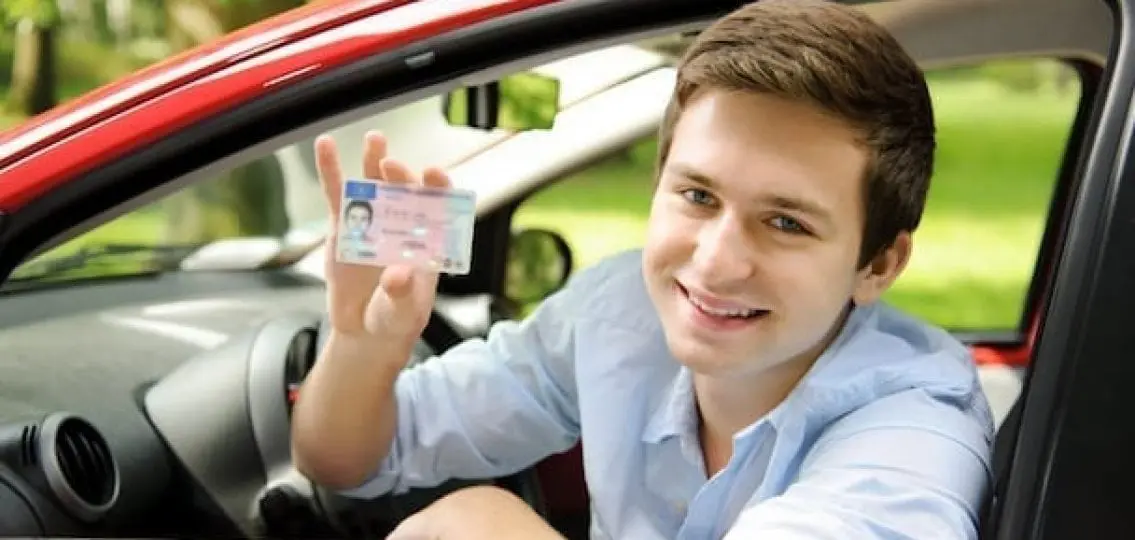
So aimless after-dinner drives become one of the rare gifts of this weird time. I sit in the passenger seat, where I belong, as my son learns to move through traffic and through life. We roll down the dark city streets, quietly chatting in the glow of the dashboard lights.
